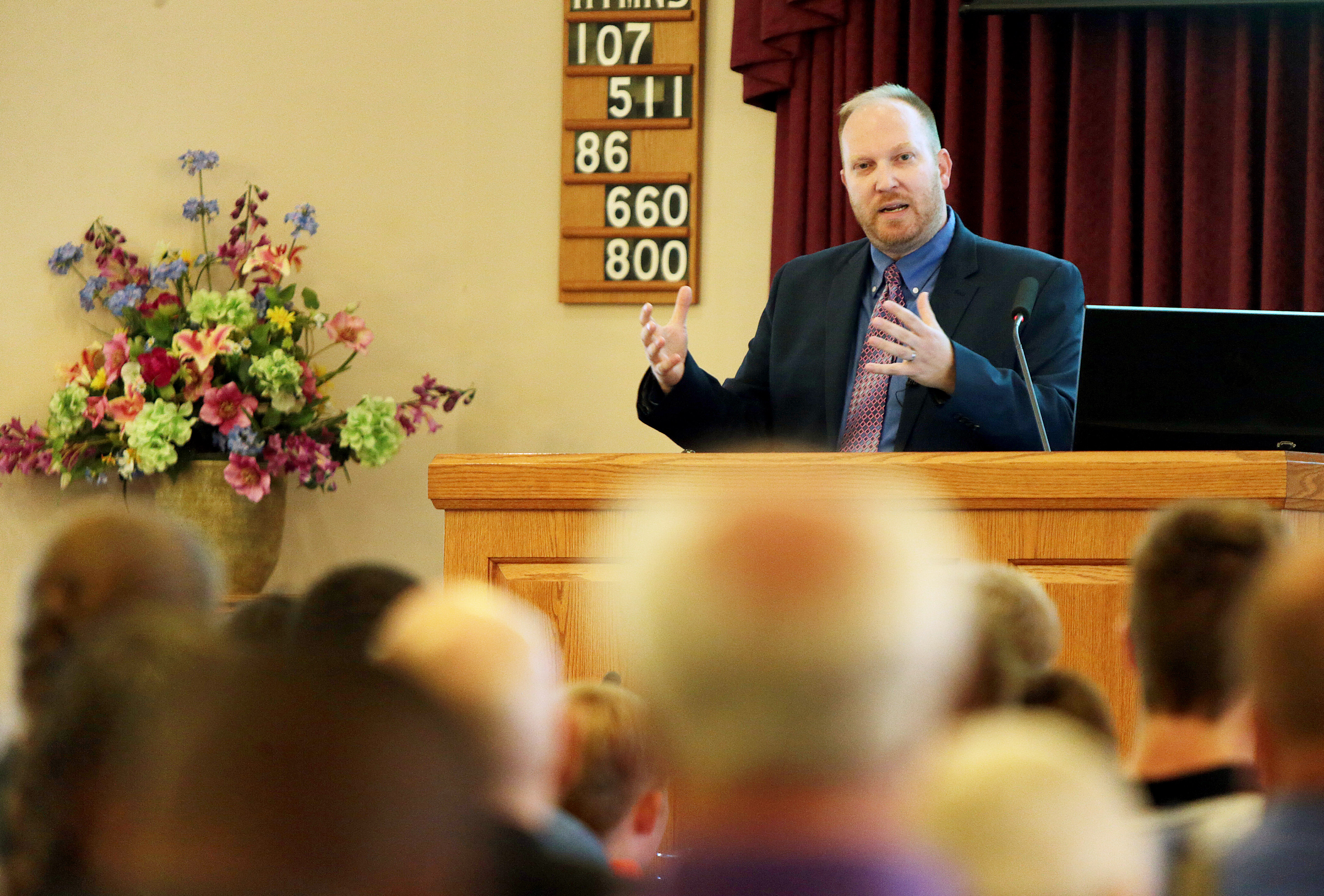TV Evangelist Preachers: The Influence, Impact, And Evolution In Modern Christianity
**Let’s face it, folks—TV evangelist preachers have become a household name in the world of religion and media. They’ve turned spirituality into a global phenomenon, reaching millions of homes through the power of television. These charismatic figures have mastered the art of combining faith with entertainment, creating a unique blend that resonates with believers and skeptics alike. So, buckle up, because we’re diving deep into the world of TV evangelism, where the gospel meets the small screen!**
There’s no denying that TV evangelist preachers have left an indelible mark on modern Christianity. They’ve taken the message of salvation to a whole new level, using cutting-edge technology to spread their message across continents. It’s not just about preaching anymore—it’s about connecting, inspiring, and transforming lives through the power of media.
But here’s the million-dollar question: Are these preachers truly serving the word of God, or are they more focused on building empires? As we explore this topic, we’ll uncover the history, influence, and controversies surrounding TV evangelist preachers. So, let’s get started and find out what makes these modern-day prophets tick!
Read also:Journal Of Multicultural Counseling Development A Comprehensive Guide To Cultural Competence
Table of Contents
- The History of TV Evangelism
- Biographies of Famous TV Evangelists
- The Impact of TV Evangelists on Society
- Controversies Surrounding TV Evangelists
- Benefits of TV Evangelism
- Criticisms and Challenges
- Who Is the Audience for TV Evangelists?
- The Role of Technology in Modern Evangelism
- The Future of TV Evangelism
- Conclusion: What Lies Ahead?
The History of TV Evangelism
Back in the day, when televisions were just becoming a staple in American households, TV evangelism was born. The 1950s saw the rise of preachers who saw the potential of this new medium to reach a wider audience. Names like Billy Graham and Oral Roberts became synonymous with televised sermons, drawing millions of viewers with their powerful messages and charismatic presence.
As the decades rolled on, TV evangelism evolved, adapting to the changing landscape of media. The 1980s and 1990s saw the rise of mega-ministries, where preachers like Jim Bakker and Pat Robertson built empires that spanned television networks, radio shows, and even theme parks. The advent of cable TV and satellite broadcasting further expanded their reach, making it possible for them to touch lives across the globe.
Early Days of TV Evangelism
In the early days, TV evangelists faced a lot of skepticism. Many questioned whether the gospel could be effectively delivered through a screen. But these pioneers proved that it could be done, and done well. They understood the power of storytelling and used it to captivate their audiences. By combining heartfelt sermons with dramatic visuals, they created an experience that was both spiritual and entertaining.
Biographies of Famous TV Evangelists
Let’s take a closer look at some of the most famous TV evangelists who have shaped the landscape of modern Christianity. These individuals have not only preached the gospel but have also become cultural icons in their own right.
Billy Graham: The King of TV Evangelism
Billy Graham is often hailed as the father of modern TV evangelism. His crusades were broadcast to millions of viewers, and his message of hope and salvation resonated with people from all walks of life. Graham’s ability to connect with his audience was unparalleled, and his influence can still be felt today.
Oral Roberts: The Healing Evangelist
Oral Roberts was another giant in the world of TV evangelism. Known for his emphasis on faith healing, Roberts attracted a massive following with his promises of divine intervention. His ministry grew to include a university, a hospital, and a broadcasting network that reached millions of viewers worldwide.
Read also:Cheap Dave Chappelle Tickets The Ultimate Guide To Catching A Laughing Legend Live
Biographical Data:
| Name | Birthday | Ministry Start | Notable Achievements |
|---|---|---|---|
| Billy Graham | November 7, 1918 | 1940s | Broadcasted crusades globally, advised U.S. presidents |
| Oral Roberts | January 24, 1918 | 1940s | Established Oral Roberts University, faith healing ministry |
The Impact of TV Evangelists on Society
TV evangelists have had a profound impact on society, both positive and negative. On one hand, they’ve brought the gospel to millions of people who might not have had access to it otherwise. Their ministries have provided comfort, hope, and inspiration to countless individuals around the world.
On the other hand, some critics argue that TV evangelism has contributed to the commercialization of religion. The focus on fundraising and building empires has raised questions about the true motives of some preachers. Despite these concerns, there’s no denying that TV evangelists have played a significant role in shaping the religious landscape of the 20th and 21st centuries.
Positive Contributions
- Spreading the gospel to a global audience
- Providing spiritual guidance and support to millions
- Using technology to innovate in religious outreach
Controversies Surrounding TV Evangelists
No discussion about TV evangelism would be complete without addressing the controversies that have surrounded some of its most prominent figures. From financial scandals to allegations of misconduct, these controversies have cast a shadow over the world of TV evangelism.
One of the most infamous cases involved Jim Bakker, the founder of the PTL Club. Bakker’s ministry was exposed for financial mismanagement and unethical behavior, leading to his downfall and imprisonment. While such cases are the exception rather than the rule, they have fueled public skepticism about the motivations of TV evangelists.
Lessons Learned
Despite these controversies, many TV evangelists have worked hard to rebuild trust with their audiences. They’ve implemented stricter financial controls and transparency measures to ensure that their ministries are run with integrity. This commitment to accountability is essential for maintaining the trust of their followers.
Benefits of TV Evangelism
While TV evangelism has its critics, there’s no denying the benefits it brings to the table. For one, it provides access to religious content that might otherwise be unavailable to certain demographics. Whether you’re a stay-at-home parent or someone living in a remote area, TV evangelism offers a way to connect with your faith community.
Additionally, TV evangelists have been at the forefront of using technology to enhance the worship experience. From live-streamed services to interactive apps, they’ve embraced innovation to make religion more accessible and engaging for their audiences.
Key Benefits
- Increased accessibility to religious content
- Use of technology to enhance worship
- Global reach and impact
Criticisms and Challenges
Of course, TV evangelism is not without its challenges. One of the biggest criticisms is the perception that some preachers are more focused on building their personal brands than spreading the gospel. The emphasis on wealth and prosperity has led some to question whether these messages align with traditional Christian values.
Another challenge is the competition for viewership. With so many TV evangelists vying for attention, it can be difficult for audiences to discern who is truly serving the word of God and who is simply trying to make a name for themselves.
Addressing Criticisms
To address these criticisms, many TV evangelists have made a concerted effort to focus on substance over style. They’ve prioritized delivering meaningful messages over flashy presentations, and they’ve worked to ensure that their ministries are grounded in authenticity and integrity.
Who Is the Audience for TV Evangelists?
The audience for TV evangelists is as diverse as the preachers themselves. From rural communities to urban centers, people from all walks of life tune in to watch their favorite TV evangelists. What draws them in is the promise of hope, healing, and salvation, delivered in a way that resonates with their personal beliefs and experiences.
Many viewers appreciate the convenience of being able to access religious content from the comfort of their own homes. For those who are unable to attend church services due to health or mobility issues, TV evangelism provides a lifeline to their faith community.
The Role of Technology in Modern Evangelism
Technology has played a crucial role in the evolution of TV evangelism. From the early days of black-and-white television to the high-definition broadcasts of today, technological advancements have enabled preachers to reach larger and more diverse audiences.
Today, TV evangelists are leveraging platforms like YouTube, social media, and podcasts to connect with their followers. They’re using data analytics to understand their audience better and tailor their messages to meet their needs. This embrace of technology has not only expanded their reach but has also deepened their engagement with their followers.
The Future of TV Evangelism
As we look to the future, it’s clear that TV evangelism will continue to evolve. The rise of streaming services and social media platforms presents new opportunities for preachers to reach even wider audiences. However, with these opportunities come challenges, such as maintaining authenticity in an increasingly digital world.
One thing is certain: TV evangelists will continue to play a vital role in shaping the religious landscape. Whether through traditional broadcasts or cutting-edge digital platforms, they’ll find ways to connect with their audiences and deliver the message of hope and salvation.
Conclusion: What Lies Ahead?
In conclusion, TV evangelist preachers have had a profound impact on modern Christianity. They’ve used the power of media to spread the gospel to millions of people around the world, providing comfort, inspiration, and guidance to those in need. While controversies and criticisms have surrounded some of their ministries, the overall impact of TV evangelism has been overwhelmingly positive.
So, what lies ahead for TV evangelism? As technology continues to evolve, we can expect preachers to find new and innovative ways to connect with their audiences. Whether through virtual reality, artificial intelligence, or other emerging technologies, they’ll continue to push the boundaries of what’s possible in religious outreach.
And now, it’s your turn, folks. What do you think about TV evangelism? Do you have a favorite preacher or ministry that you follow? Let us know in the comments below, and don’t forget to share this article with your friends and family. Together, we can continue the conversation about faith, media, and the future of Christianity!


